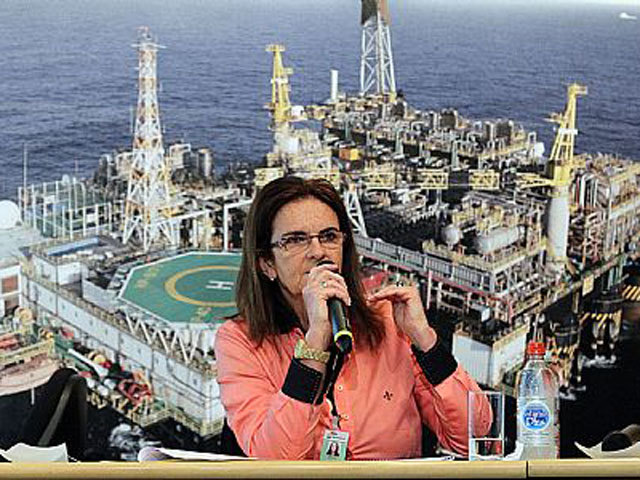
Petrobras is stepping up cost-cutting measures to avoid a fourth straight profit decline amid losses derived from government fuel subsidies.
Brazil’s state-run oil producer raised a 2013-2016 cost-saving target to 37.5billion reais ($16.9billion) from 32billion reais, the Rio de Janeiro-based company said in a statement accompanying first-quarter results, which included a 30% drop in net income.
Chief executive Maria das Gracas Foster is attempting to counter operational losses at the company’s refining and distribution unit of about $40billion since 2011 when President Dilma Rousseff started using Petrobras to subsidize fuel imports to rein in inflation. Foster has sought to close the gap between domestic and foreign prices, while cutting operating expenses and increasing production.
“The company has the ability to recover profitability and its market value over the course of 2014, mainly through efficiency gains and increasing operational capacity,” said Nataniel Cezimbra, an analyst at Banco do Brasil.
First-quarter net income declined to 5.39billion reais ($2.28 billion) from 7.69billion reais a year earlier.
Fuel imports rose 13% from a year earlier, generating a first-quarter loss for the refining unit of 7.4billion reais. Profit at its gas unit slumped 41%.
Price caps require imported gasoline and diesel to be sold at a loss to domestic distributors. President Rousseff is seeking to keep prices in check ahead of October elections. Increases of 4% for gasoline and 8% for diesel that took effect December 2 were the first in nine months.
Petrobras’s cash flow will improve after it starts a new refinery later this year, Foster said in the statement. The company will also “gradually” adjust domestic prices to international benchmarks, she said.
Petrobras, the only gasoline and diesel producer in Brazil, ran its 11 crude refineries at an average 96%of capacity during the quarter in an attempt to lower reliance on imports. The over-stretching of workers and machinery was one of the reasons behind fires at two plants in December and January, according to the country’s oil workers union.
Petrobras said May 5 that it expects 13billion reais in savings through 2018 with a voluntary dismissal program.
Petrobras’s debt of more than $100billion is the highest of any publicly traded oil company, data compiled by Bloomberg show. That compares with about $82billion at PetroChina and about $66billion at Russia’s Rosneft, the two most indebted crude producers after Petrobras.
A fourfold increase in the obligations in five years prompted Moody’s Investors Service to cut its rating on Petrobras’s debt by one level last year to Baa1, the third- lowest investment grade.
Recommended for you
